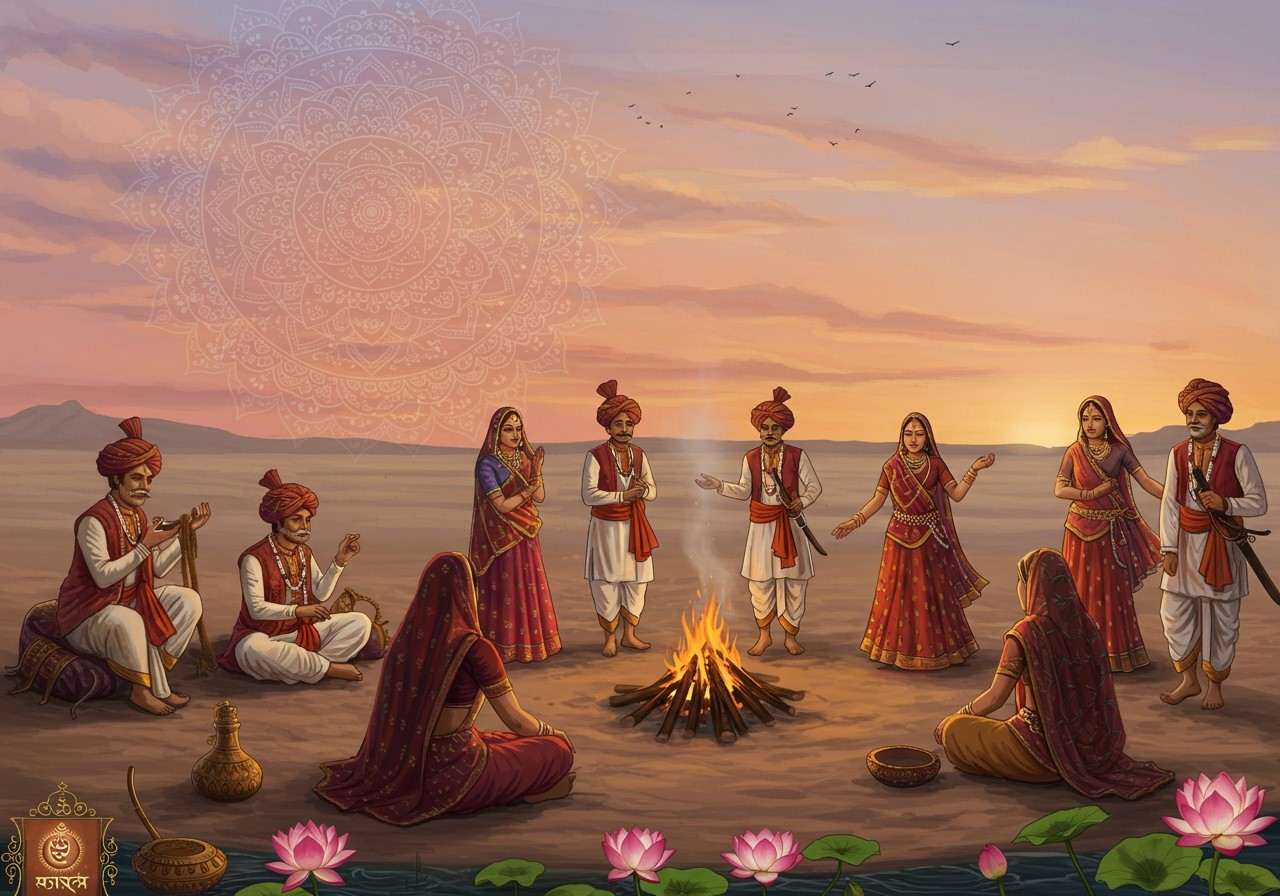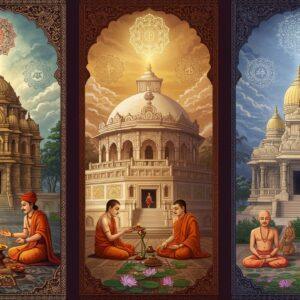

Bharat’s history is not just a collection of dates and events; it’s a vibrant tapestry woven with countless stories of valour, tradition, and resilience. Every community, every clan, has a unique thread in this beautiful fabric. Today, let’s journey back in time to explore the fascinating saga of the Johiya clan, a community known for its bravery and deep-rooted traditions that have shaped the culture of northwestern India.
The Historical Footprints of the Johiya Clan
The story of the Johiyas is as ancient as the land they come from. Many historians believe their name is a whisper from the past, derived from the powerful “Yaudheya” tribal confederation that once thrived between the Indus and Ganges rivers. Imagine them, between the 8th and 12th centuries, as the proud “Lords of Jangladesh”—a vast region covering parts of today’s Rajasthan, Hariana, and beyond. They were the masters of their domain, a formidable force of Rajputs and Jats who commanded respect.
Their journey through time saw many changes. The winds of faith blew across the land, and in the 13th century, many Johiyas embraced Islam under the gentle influence of the great Sufi preacher, Baba Farid. It’s a beautiful example of how our culture has always been a confluence of different streams of thought. Despite this change, they held on dearly to their Rajput identity, a testament to their strong cultural moorings.
Life was a constant dance of conflict and alliance. They clashed with the Bhattis and served as vassals to the Rathores of Bikaner, always fighting to protect their lands and their honour. The mid-16th century brought a great upheaval when they were displaced from their capital by the Rathore rulers, with the aid of the Mughal Emperor Akbar. Yet, their spirit remained unbroken, and their legacy continued to echo through the sands of time.
The Heartbeat of Johiya Culture and Traditions

What truly defines a community is its culture, and the Johiyas have a rich heritage that they cherish. Their identity is a unique blend of Rajput and Jat traditions, making them a fascinating study in our subcontinent’s social fabric. They are a hardworking and courageous people, known for their strong community bonds—a quality where everyone shares in each other’s joys and sorrows.
The clan is beautifully structured into sub-clans like the Langavira, Madhovira, and Admera, each with its own stories and lineage. These are not just names; they are markers of identity, connecting families across generations.
- Ceremonies and Festivals: Like in any traditional Indian family, life events are celebrated with great fervour. From the birth of a child to a wedding, rituals are performed that have been passed down for centuries. Festivals light up their lives, strengthening the bonds of kinship and community. These are times when stories of their ancestors’ valour are retold, filling the hearts of the younger generation with pride.
- Art and Craftsmanship: The Johiyas have also been patrons of local arts. Preserving traditional crafts is like preserving a piece of your soul. In our modern world, it’s heartening to see these skills kept alive. It reminds us of the beauty in handmade things, each telling a story. Decorating our homes with pieces that reflect our heritage, like a beautiful Mandala wall art, is a wonderful way to keep our culture close.
Leadership and Social Fabric
The social structure of the Johiya clan is built on a foundation of respect, especially for elders. Traditionally, a clan head, guided by a council of wise elders, would make important decisions. This system ensured that governance was rooted in collective wisdom and experience. Family lineage is deeply valued, fostering a sense of unity and cooperation that has helped them navigate through challenges for centuries.
Today, the younger generation is stepping out, seeking education and new opportunities, which naturally brings some changes to the social dynamics. However, the core values of kinship and community remain strong, creating a beautiful balance between tradition and modernity.
Connecting with Your Roots in Modern Times
In our fast-paced lives, staying connected to our rich traditions can sometimes feel like a challenge. We understand that. That’s why at poojn.in, we are dedicated to bringing the essence of Indian culture right to your doorstep. Whether it’s for a special puja or creating a serene, spiritual atmosphere at home, having authentic items makes all the difference.
Imagine the calming aroma of traditional dhuno filling your home during evening prayers. It’s more than just a fragrance; it’s a connection to generations of faith. We offer authentic, handmade dhuno pots to help you perform your rituals with genuine devotion and ease. Explore our collection to find items that help you and your family celebrate your heritage.
Curious to Know More About the Johiyas?
Many people are fascinated by the origins and traditions of the Johiya clan. Their story begins in the ancient Rajputana region, with roots possibly connecting them to the powerful Yaudheya warriors of antiquity. Historically, they were not just farmers but formidable warriors who ruled vast territories and fiercely defended their lands.
The name “Johiya” itself is believed to honour a prominent ancestral leader, a figure of great importance in their history. While modern life has introduced new professions, the clan’s core values of honour, courage, and respect for elders remain deeply ingrained. Even today, many families continue to observe age-old customs, especially during festivals and family ceremonies, beautifully blending their rich past with the realities of the present. Their legacy is carried forward by notable figures who have contributed to various fields, ensuring the Johiya story of pride and nobility continues to inspire.
Conclusion: A Legacy of Resilience
The Johiya clan is a powerful reminder of the enduring strength of our cultural heritage. Their journey through history, marked by bravery, adaptation, and an unwavering commitment to their identity, is truly inspiring. By embracing the future without forgetting their past, the Johiyas enrich the grand tapestry of Indian culture. Their story is not just history; it’s a living heritage, a legacy of resilience that will continue to shine for generations to come.


